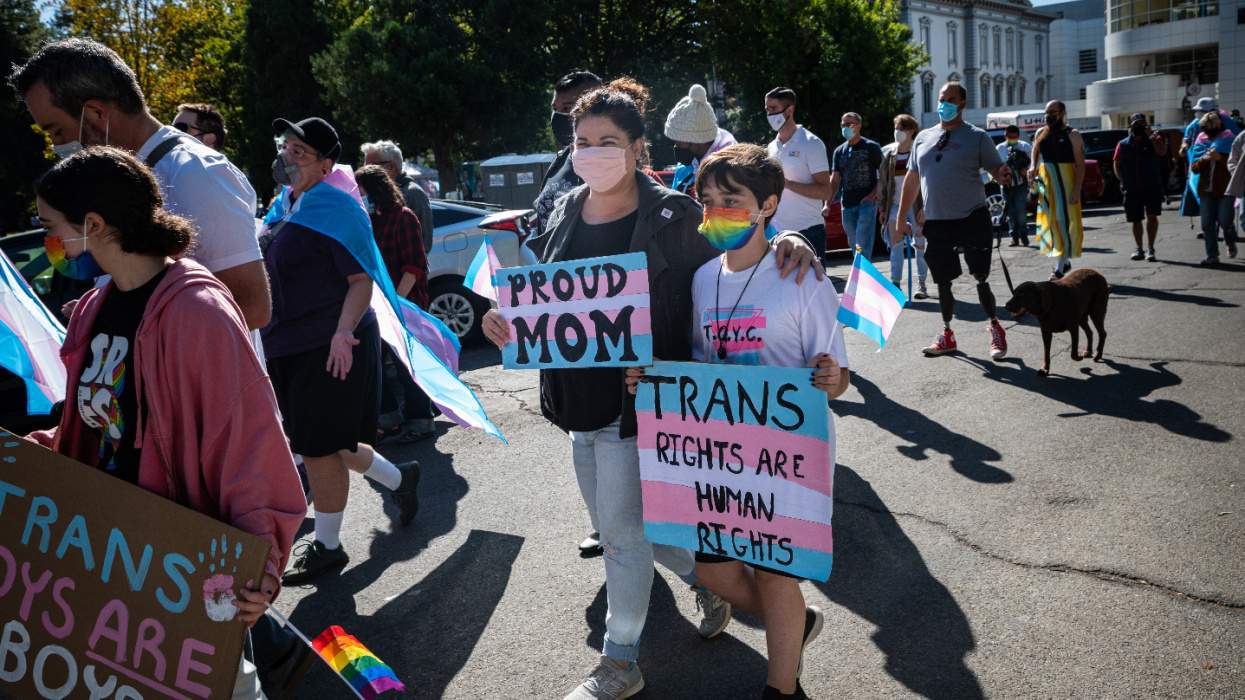The unrelenting wave of violence plaguing the transgender community has claimed the life of another trans woman of color, bringing this year's known death toll to 16 trans people killed in the U.S. alone.
Dee Whigham, 25, was found stabbed to death in a hotel room near Biloxi, Miss., Saturday, reports Gulfport's Sun Herald newspaper.
Jackson County sheriff's deputies arrested 20-year-old Dwanya Hickerson Monday in connection with Whigham's murder, after releasing images from the hotel surveillance cameras that reportedly showed Hickerson leaving the hotel where Whigham was killed.
Hickerson has been charged with capital murder and robbery, though police would not disclose the nature of the robbery. He is being held without bond. If convicted of capital murder, Hickerson could face the death penalty.
The local paper reports that Hickerson is a U.S. Navy recruit originally from New Orleans, who was stationed in the area for training. Charges were filed against Hickerson after police officers searched his residence at the nearby Keesler Air Force Base.
Police officials have thus far declined to comment on the possibility that Whigham's murder was a hate crime or motivated by her gender identity. Mississippi's hate-crime statute does not currently cover gender identity, and only 17 states have enacted such measures to date. But if investigators discover that Hickerson did kill Whigham in part because of her gender identity, Hickerson could be charged under the federal hate-crime statute passed in 2009 and signed into law by President Obama.
Originally from Shubuta, a small town in central Mississippi, Whigham had traveled to the Biloxi area with friends to attend the Gulf Coast Black Rodeo at the Mississippi Coast Coliseum. She was reportedly sharing the hotel room where she was killed with friends who were also planning to attend the rodeo.
Whigham had recently completed her nursing licensure, and since January worked as a registered nurse at Forrest General Hospital in Hattiesburg, Miss. The hospital's CEO spoke fondly of the young woman in a statement to the Sun Herald.
"She will be remembered at Forrest Health as an excellent nurse who was well-loved by her patients," said Forrest Health CEO Evan Dillary. "I know Dee will be missed by her co-workers, supervisors, and the Forrest Health family."
Raquel Cooley, Whigham's cousin, told the Sun Herald that it was deeply unfair that her cousin's life had been taken. "[She] was a hard-working, kind-hearted person who was just starting [her] life who did not deserve this," Cooley said.
Whigham's sister Denisha also mourned the young nurse on social media. "I just can't believe [she] is gone forever," she wrote. "I love you and you will be missed."
In a marked difference from the majority of mainstream coverage of anti-trans homicide, the Sun Herald accurately identified Whigham as the woman she was, adhering to journalistic best practices endorsed by the Associated Press and GLAAD. By doing so, the paper continues to set itself apart from its contemporaries, as a local outlet that covers transgender people respectfuly.
In 2014, the Sun Herald was the first to accurately identify Mercedes Williamson, a 17-year-old transgender girl who was murdered by a gang member in Mississippi, then misgendered by several local and national outlets. Williamson's killer, Josh Vallum, pleaded guilty to Williamson's murder July 12 and was sentenced to life in prison. The U.S. Department of Justice is also investigating the case, and may file federal hate-crime charges against Vallum.
Meanwhile, Mississippi made headlines earlier this year for passing one of the most aggressively anti-LGBT laws in the country, effectively enshrining a business's right to refuse service to gay, bisexual, and transgender people. The law also prohibited the state from recognizing transgender people's authentic gender identity, declaring that one's sex assigned at birth would be the only gender legally recognized by the state.
Out attorney Roberta Kaplan, who represented Edie Windsor in the landmark U.S. Supreme Court case that brought down the so-called Defense of Marriage Act, sued Mississippi over its anti-LGBT law, winning an injunction that blocked the law's implementation just hours before it was to take effect.
This year has been one of the most deadly on record for the transgender community -- particularly for black trans women, who make up the majority of those who have been murdered over the last three years. The intersection of racism, transphobia, and transmisogyny, coupled with entrenched discrimination against both trans people and people of color, makes black trans women particularly vulnerable to violence.
With at least 16 trans people killed already this year, 2016 is on pace to meet or exceed the 21 murders recorded in 2015, and has well surpassed 2014's total of 12 known trans people killed. None of these totals include trans people whose deaths were not reported or those whose murders went unnoticed due to misgendering by police and media.















Charlie Kirk DID say stoning gay people was the 'perfect law' — and these other heinous quotes
These are some of his worst comments about LGBTQ+ people made by Charlie Kirk.